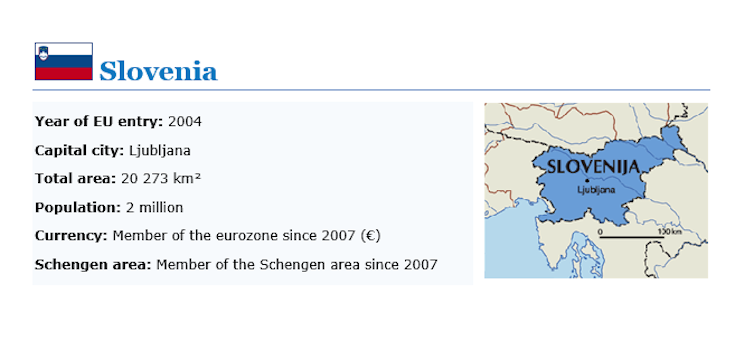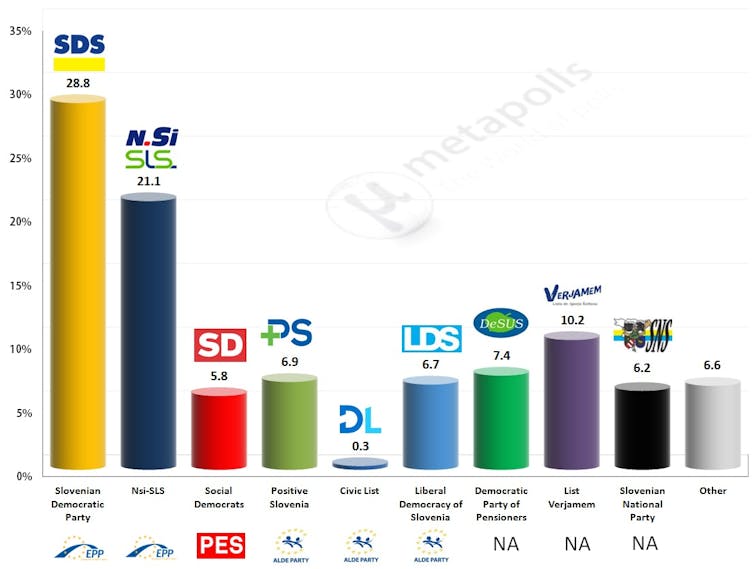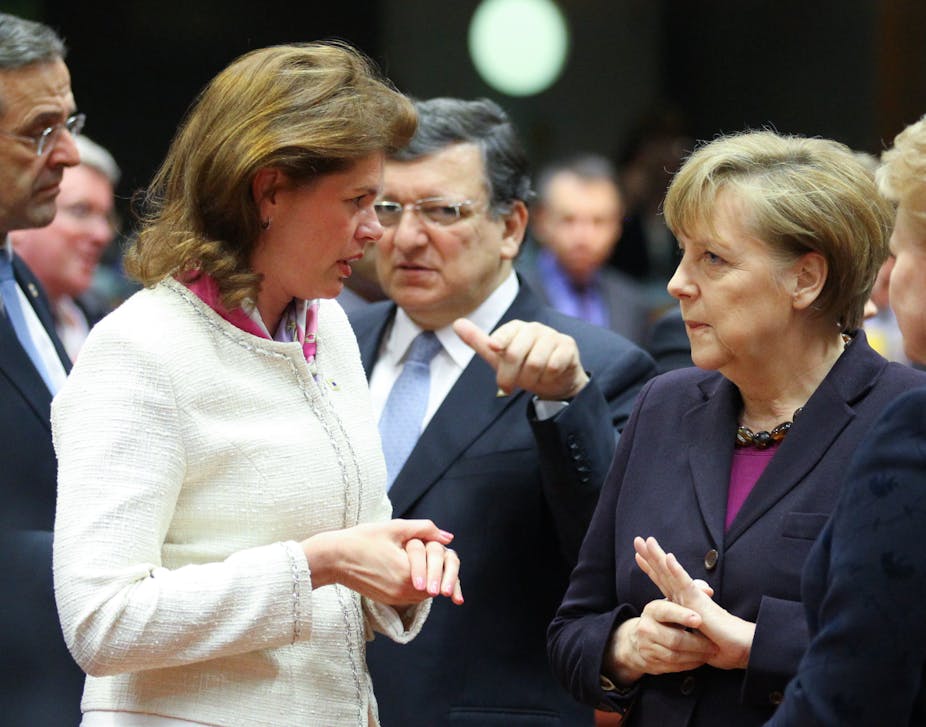Most contenders for the European elections in Slovenia waited until the very last moment to submit their candidate lists to the electoral commission. There will be 16 entrant lists this time, compared to 12 in 2004 and 13 in 2009.
All seven parliamentary parties are putting forward candidates, including the three biggest ones – centre-left Positive Slovenia, which leads the ruling coalition at the time of writing but has no MEPs; the right-leaning Slovenian Democratic Party, currently has three MEPs, and the centre-left Social Democrats – two MEPs. Liberal Democracy of Slovenia will support a list of candidates under the leadership of its existing MEP, Jelko Kacin.
All of the current Slovenian MEPs, apart from two from the Slovenian Democratic Party, Zofija Mazej Kukovič and Romana Jordan, are running for re-election. The other parties with existing MEPs are New Slovenia (Christian democrats) and Zares-Social Liberals, which have one each.

Among the numerous other entrants, a civil society organisation submitted a list under the leadership of former president of the Slovenian Court of Audit, the country’s highest court for supervising state public spending. It is believed to be entering under the name List of Igor Šoltes.
There will also be a candidate list submitted by a citizens’ action group called Dream Job. It is overseeing campaigns by eight citizens who were drawn out of a hat after expressing an interest in getting what they saw as a “dream job” in the European parliament. The group’s purpose was to show that drawing lots in this way can give better results than party selection processes.
Not much sign of the women
Only two candidate lists will be led by women – Zares-Social Liberals and United Left. Meanwhile only one serving minister will stand for election, from the liberal Civic List party.
Officially the electoral campaign in Slovenia started a month before the elections, a campaign activities start beforehand. This year has been different because two other domestic events have overshadowed proceedings. First, a lot of time has been devoted to a referendum on the amendments to the law on archives and archival material. The referendum was initiated by the Slovenian Democratic Party, and in February/March a battle ignited over the date that it would be held.
While the Slovenian Democrats demanded it be held simultaneously with the European elections, coalition parties strongly opposed the idea. Most recently the plan is to hold the referendum on June 8.
Government turmoil
A more dramatic distraction was a leadership battle within the centre-left Positive Slovenia party, which only days ago unseated the party leader and Slovenian prime minister, Alenka Bratušek. Her opponent was Zoran Janković, who has been pushing for a return to the Positive Slovenia throne after temporarily stepping down a year ago over findings by the anti-corruption commission that suggested he was involved in possible corrupt activity.
Things came to a head at the party congress when Janković won an internal leadership election on April 26. Bratušek resigned on May 5 after only 13 months at the helm. Even before the result was announced, Positive Slovenia’s coalition partners the Social Democrats, Civic List and Democratic Party of Retired Persons of Slovenia had said they would dissolve the coalition if Bratušek was defeated, so the country appears to have entered a period of upheaval.
She is being tipped to leave Positive Slovenia to start a new party and launch a fresh push for power. If this now leads to a general election, the question now is whether Slovenia will see a repeat of 2004. In that year the European elections were held several months before a general election and the debate became all about national topics rather than European ones.
Poll with it
So far the signs are that Positive Slovenia is heading for a very bad result. According to public opinion polls conducted by daily newspaper Delo on April 7 and 8, the party standings for the European elections were: the Slovenian Democratic Party would win with 20.8%, followed by the Slovenian National Party with 12.1%, and the joint list of New Slovenia and Slovenian People’s Party with 11.5%.
Positive Slovenia, whose leading European candidate is prominent economist Jože Mencinger, who describes himself as a eurosceptic, polled just 4.6%. The biggest decline in comparision with the previous poll conducted by the same newspaper in mid-March recorded the Social Democrats’ support shrinking from 10.6% to 4.4%. It seems the main reason for this is entrance of List of Igor Šoltes into the game, receiving 8.7% support.

Another poll was conducted by pollster Ninamedia and weekly newspaper Mladina a couple of weeks later. It predicted the winner would be the Slovenian Democratic Party with 12% support, followed by joint list of New Slovenia and the Slovenian People’s Party with 10.3%. It put Positive Slovenia in a distant fourth place behind List of Igor Šoltes.
Despite this uncertainty, voter turnout is not predicted to be high. The polls say that approximately 30% of voters will definitely vote, compared to a 28% turnout in both 2004 and 2009.

